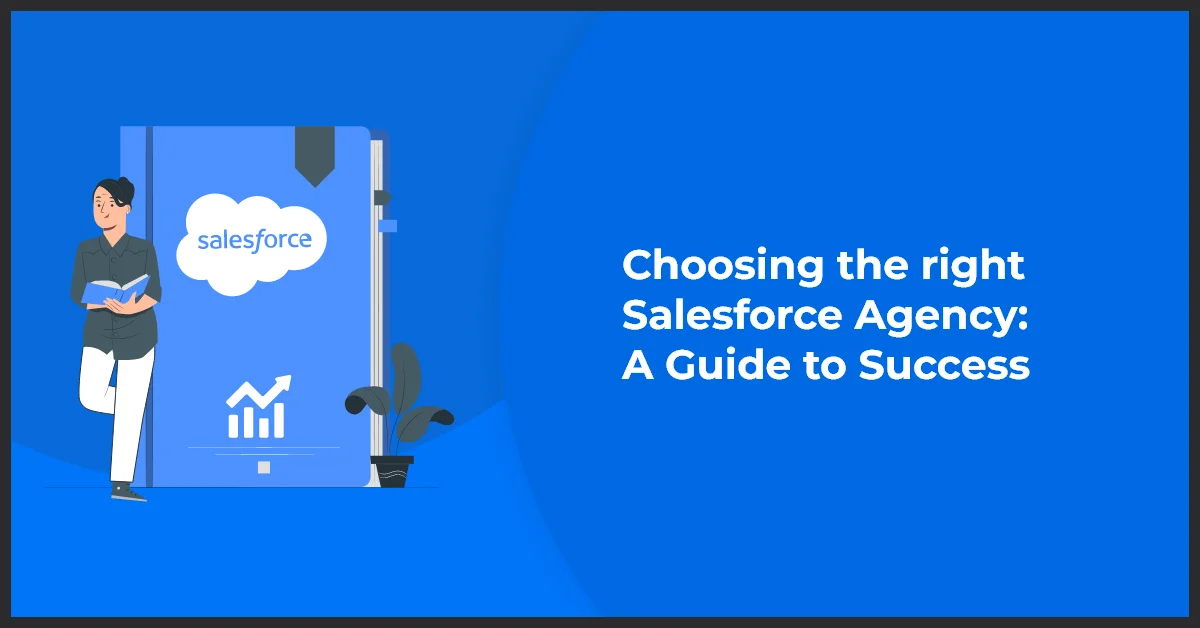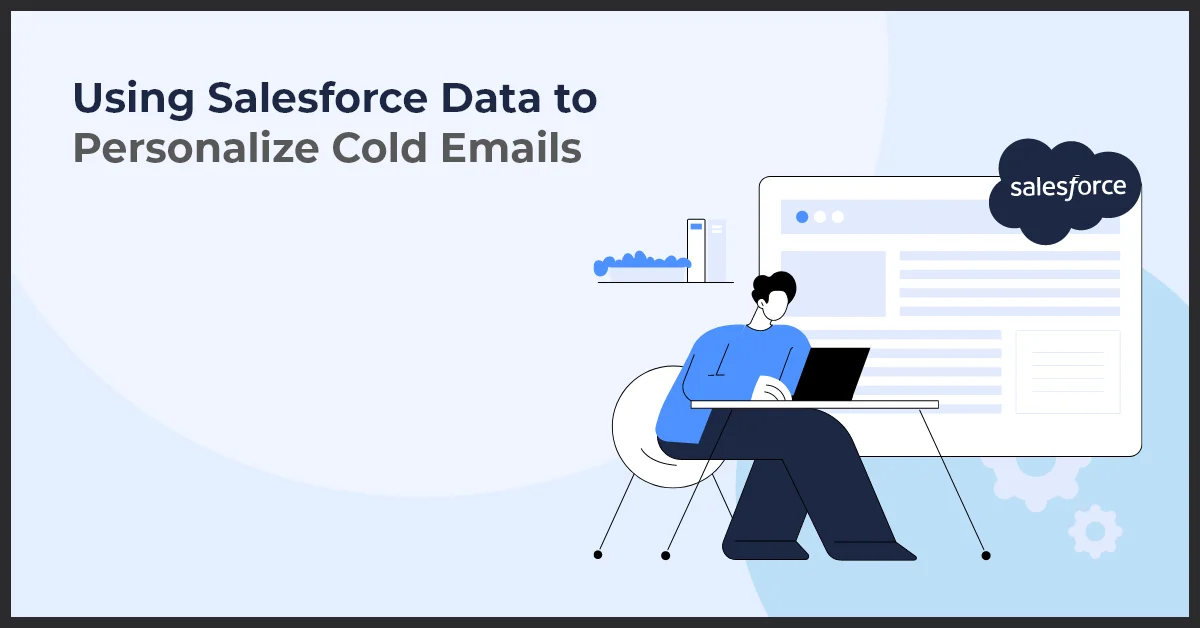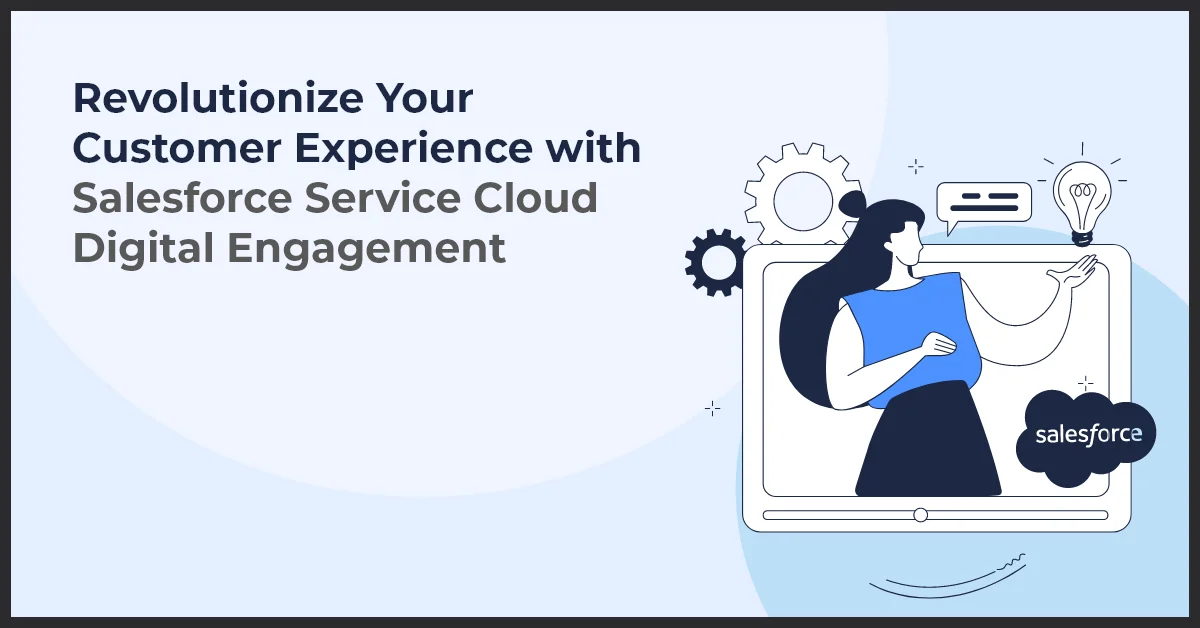Unlocking the Power of Salesforce for Small Business Growth

Published on: June 30, 2023
Updated on: March 05, 2025
1669 Views
- Salesforce
11 min read
In today's highly competitive business landscape, small businesses often struggle to keep up with larger enterprises due to limitations in resources, technology, and scalability. However, Salesforce, a powerful Customer Relationship Management (CRM) platform, offers small businesses the opportunity to level the playing field.
This blog post will explore how small businesses can unlock enterprise-level capabilities by customizing and optimizing Salesforce for their needs.
Customizing Salesforce for Small Businesses
The key to unlocking the full potential of Salesforce lies in tailoring it to meet your small business's unique requirements and goals.
By assessing your specific business needs, you can make the most of Salesforce customization options, such as:
Custom Fields and Objects
When managing your business data effectively, Salesforce allows you to go beyond its standard functionality by creating custom fields and objects. These customized elements enable you to capture and organize data that aligns precisely with your unique business processes.
By tailoring Salesforce to your specific needs, you can ensure that the information you gather is relevant and meaningful. Whether capturing additional customer details, tracking particular metrics, or creating custom categories, custom fields, and objects empowers you to mold Salesforce into a CRM solution that perfectly fits your small business.
Workflow Rules and Automation
Repetitive tasks and manual processes often bog down small businesses. However, Salesforce's workflow rules and automation features offer a solution to streamline and automate these time-consuming activities. By setting up workflow rules, you can define:
- Triggers and actions that automate the flow of information
- Notifications and tasks within your organization
This not only saves time but also ensures consistency in your operations.
For example, you can automate lead assignments based on predefined criteria or automatically send follow-up emails to customers after a purchase. By eliminating manual interventions, you can boost efficiency, enhance productivity, and allow your team to focus on high-value tasks that require human expertise.
Dashboards and Reports
Having access to real-time insights is crucial for making informed decisions. With Salesforce, small businesses can gain valuable insights into their performance by creating customized dashboards and reports. With drag-and-drop functionality, you can visually represent your data meaningfully, making it easier to identify trends, patterns, and opportunities.
These visualizations include charts, graphs, and tables comprehensively overview your key business metrics. Dashboards and reports can empower your teams by:
- Tracking sales revenue
- Monitoring marketing campaign performance
- Continuously optimizing your business strategies
- Enabling data-driven decisions
AppExchange Integrations
Salesforce's AppExchange is an extensive marketplace that offers a wide range of third-party applications and integrations tailored to meet the specific needs of small businesses. Integrating these applications with Salesforce extends the capabilities of your CRM and unlocks additional functionality.
For example, you can integrate marketing automation tools to streamline your marketing campaigns, accounting software to manage financial data seamlessly, or customer survey tools to gather feedback directly into Salesforce.
The AppExchange ecosystem provides many options, ensuring you can find the right solutions to enhance your business operations. These integrations can:
- Save you time and effort by consolidating information and processes
- Allow for greater efficiency and a unified view of your business data
Small businesses can overcome resource limitations and unlock enterprise-level capabilities by leveraging:
- Customization options
- Automation features
- Data visualization tools
- Salesforce integration
Optimizing Each Salesforce Product for Better Business Operations
Salesforce offers a suite of products catering to your business's different aspects. Optimizing each product can further enhance your small business operations:
Streamlining Sales and Lead Management With Sales Cloud
Empower your sales team with Sales Cloud, a comprehensive solution for managing leads, opportunities, and customer relationships. Automate sales processes, track sales performance and collaborate seamlessly to close deals faster.
Automating Marketing Efforts With SFMC
Salesforce Marketing Cloud (SFMC) enables small businesses to automate marketing campaigns, segment customer data, and deliver personalized content across various channels. Improve customer engagement, drive conversions, and nurture long-lasting relationships.
Enhancing Customer Service and Support With Service Cloud
Deliver exceptional customer service by leveraging Service Cloud. Centralize customer inquiries, automate case management, and provide self-service options through a knowledge base. Strengthen customer loyalty and satisfaction.
Empowering Data-Driven Decisions With Einstein Analytics
Einstein Analytics offers small businesses powerful data analytics capabilities. Uncover trends, predict customer behavior, and optimize business strategies based on actionable insights from your Salesforce data.
Best Practices for Small Businesses to Unlock Enterprise-Level Capabilities with Salesforce
To maximize the benefits of Salesforce, small businesses should adopt the following best practices:
- Proper Planning and Requirements Analysis: Conduct a thorough assessment of your business needs and goals before implementing Salesforce. Define clear objectives and outline the desired outcomes to ensure a successful deployment.
- Comprehensive User Training and Support: Invest in training programs to empower your employees to make the most of Salesforce. Provide ongoing support and encourage adoption to ensure everyone understands the platform's capabilities and benefits.
- Regularly Review and Optimize Salesforce Configuration and Processes: Continuously evaluate and fine-tune your Salesforce configuration and processes to align with changing business requirements. Regular reviews can uncover opportunities for improvement and enhance efficiency.
- Engage with Salesforce User Communities and Seek Expert Advice: Join Salesforce user communities, forums, and events to learn from peers and industry experts. Share experiences, ask questions, and gain insights into best practices specific to small businesses.
Key Features of Salesforce for Small Businesses
A. Sales Automation and Productivity
Salesforce offers a range of tools designed to automate sales processes and boost productivity. With features such as custom workflows, task automation, and email templates, small businesses can streamline their sales operations and save valuable time.
By automating repetitive tasks, Salesforce enables sales teams to focus on more important activities, such as building relationships with customers and closing deals. This increased productivity ultimately leads to higher sales and revenue for small businesses.
B. Lead Generation and Management
Generating and managing leads can be a challenging task for small businesses. Salesforce simplifies this process by providing effective lead generation and management functionalities.
Small businesses can leverage Salesforce's lead tracking capabilities to easily identify their most promising leads and allocate resources accordingly. Salesforce also supports lead nurturing, allowing businesses to build relationships with potential customers through personalized communications and targeted campaigns.
C. Customer Service and Support
Delivering exceptional customer service is crucial for small businesses to succeed in today's competitive market. Salesforce offers a range of features to enhance support interactions and ensure customer satisfaction.
With Salesforce, businesses can efficiently manage customer support requests, track case histories, and streamline communication between teams. Additionally, Salesforce enables businesses to provide personalized support experiences through features like live chat, knowledge base management, and self-service portals.
Business Growth and Expansion with Salesforce
A small business's success often hinges on its ability to grow and expand. Salesforce, with its versatile platform, offers numerous ways for small businesses to scale their operations and adapt to changing needs.
Scalability and Flexibility
As a small business grows, it requires a CRM solution that can accommodate its increasing customer base and expanding operations. Salesforce is designed to scale with businesses, ensuring that it can handle a growing number of leads, opportunities, and customers. Whether a business doubles in size or expands to multiple locations, Salesforce provides the necessary flexibility to support its growth.
Additionally, Salesforce's AppExchange marketplace offers a wide range of applications and integrations that can be easily added to meet the evolving needs of a small business. These integrations enable businesses to extend the functionality of Salesforce and customize it to suit their specific requirements, ensuring that the CRM system remains aligned with their growth strategies.
Data Analytics and Reporting
Effective decision-making is crucial for the growth of small businesses. Salesforce's robust data analytics capabilities empower businesses to gather valuable insights and make informed decisions based on real-time data.
With Salesforce, small businesses can track and measure key performance indicators (KPIs) to monitor their business performance. They can analyze customer data, sales trends, and marketing campaigns to identify areas of improvement and capitalize on growth opportunities. Salesforce's reporting tools provide comprehensive visualizations and dashboards, enabling small businesses to present data in a visually appealing and easily understandable format.
By leveraging Salesforce's data analytics and reporting features, small businesses can make data-driven decisions, optimize their processes, and drive significant growth.
Customer Retention and Loyalty through Salesforce
A. Importance of Customer Retention
Customer retention is a crucial factor in the success of small businesses. It costs much less to retain an existing customer than to acquire a new one. Additionally, loyal customers tend to spend more and are more likely to recommend your business to others. Salesforce plays a vital role in helping businesses build and maintain strong relationships with their customers.
By utilizing Salesforce, small businesses can track customer interactions, preferences, and purchase history. This valuable information enables businesses to understand their customers better and provide personalized experiences that meet their specific needs and expectations. Salesforce provides the tools and insights needed to cultivate customer loyalty and create brand advocates who will continue to choose your products or services over competitors.
B. Utilizing Salesforce for Marketing
Salesforce offers comprehensive marketing solutions specifically designed for small businesses. With Salesforce, you can streamline your marketing efforts and ensure that you reach the right audience at the right time.
One of the standout features of Salesforce is its marketing automation tools. These tools allow small businesses to automate various marketing tasks, such as email campaigns, social media posts, and lead nurturing. By automating these processes, businesses can save time and resources while delivering personalized and targeted messages to their customers.
Furthermore, Salesforce provides powerful analytics and reporting capabilities that help businesses measure the success of their marketing campaigns. Through sophisticated tracking and analysis, small businesses can gain valuable insights into customer behavior and preferences. This information can then be used to refine marketing strategies and further enhance customer loyalty.
Implementing Salesforce for Small Businesses
A. Getting Started with Salesforce
Implementing Salesforce for small business operations is a strategic decision that can bring immense benefits to your company. To help you get started, here is a step-by-step guide:
- Assess Your Business Needs: Before diving into Salesforce implementation, identify the specific goals and objectives you want to achieve. This will help tailor Salesforce to your small business requirements.
- Plan and Customize: Create a roadmap for how Salesforce will be integrated into your existing business processes. Customize the platform to match your workflows and automate repetitive tasks.
- Train Your Team: Provide comprehensive training to ensure your employees are equipped with the knowledge to effectively use Salesforce. Take advantage of the resources and support available, such as online tutorials and webinars, to facilitate the learning process.
- Data Migration: Transfer your existing customer data onto Salesforce. Ensure the accuracy and integrity of the data during this process.
- Test and Iterate: Conduct thorough testing of your Salesforce implementation to identify any bugs or issues. Continuously refine and optimize your setup based on user feedback and evolving business needs.
During the setup phase, Salesforce offers a range of resources and support specifically designed for small businesses. Whether it's access to a dedicated success coach, personalized training sessions, or a vibrant community of fellow small business owners, you're not alone in this journey.
B. Best Practices and Tips
Optimizing Salesforce usage in a small business setting requires some best practices and tips. Consider implementing the following:
- Streamline Workflows: Identify and streamline your business processes using Salesforce automation tools. This will help save time and increase productivity.
- Regularly Update and Clean Your Data: Maintain the accuracy and relevance of customer information by routinely updating and cleaning your Salesforce data.
- Create Custom Reports and Dashboards: Leverage Salesforce's reporting capabilities to gain insights into your business performance. Customize reports and dashboards to track key metrics and make data-driven decisions.
- Enhance Collaboration: Utilize Salesforce's collaboration features, such as Chatter, to foster communication and collaboration among your team members.
- Stay Up to Date: Regularly explore Salesforce updates and new features to take advantage of advancements and improvements that can benefit your small business.
It's important to address common challenges that may arise during the implementation process. These challenges may include resistance to change, data migration complexities, or user adoption hurdles. By communicating the benefits and providing ongoing training and support, you can overcome these obstacles and maximize Salesforce's potential in your small business.
Final Thoughts
With the right Salesforce consulting and development services, businesses can harness the full potential of Salesforce and achieve significant growth.
Growth Natives enables businesses to unlock enterprise-level capabilities and compete with larger enterprises. With our Salesforce consulting and development services, you can streamline operations, improve customer experiences, and make data-driven decisions by customizing and optimizing Salesforce to meet specific business requirements. To know more about how experts can help you transform your business, shoot us an email at info@growthnatives.com!



